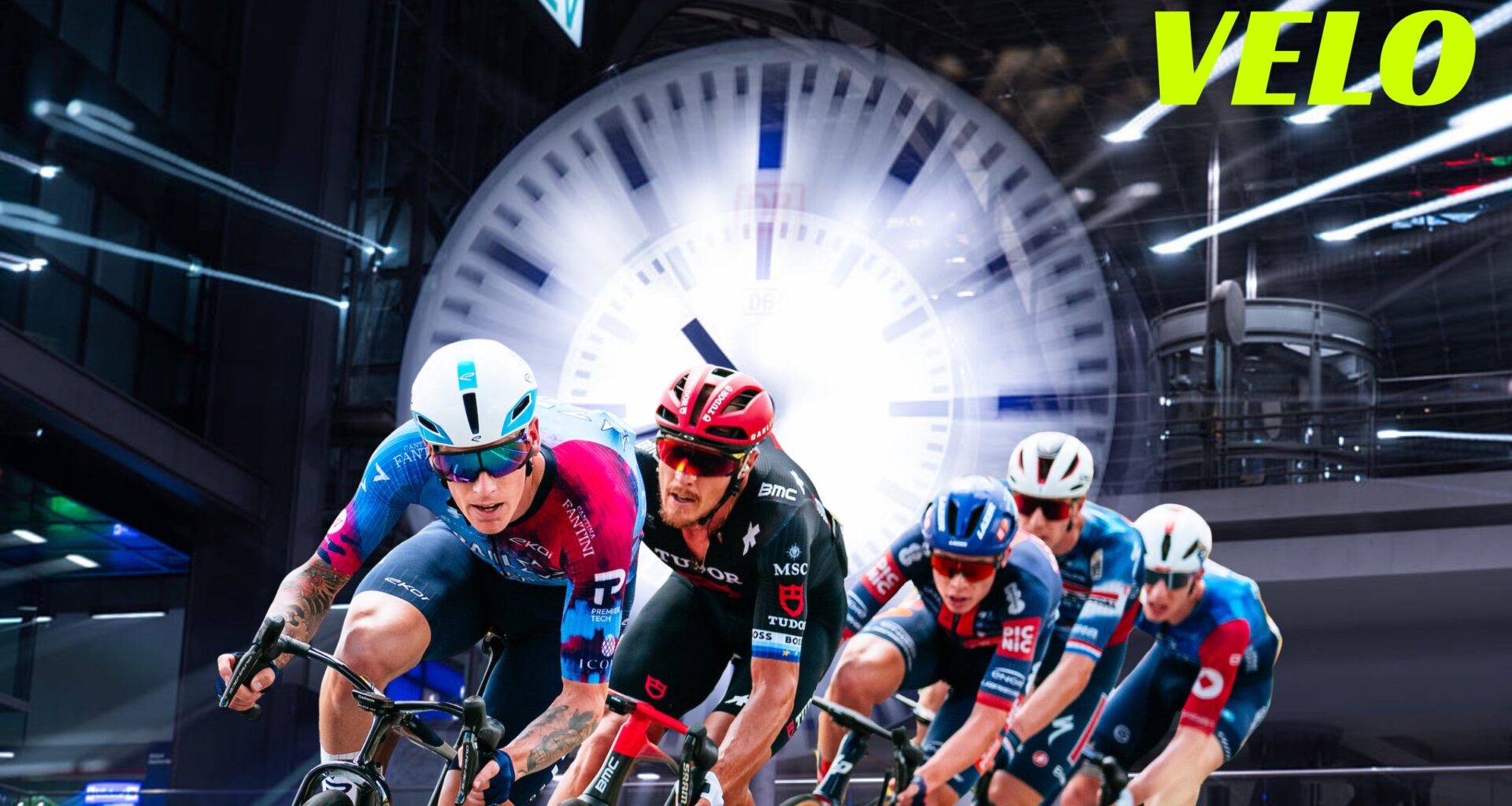Updated October 28, 2025 12:02PM
Cycling is pushing a dangerous “ride fast – frazzle young” culture of super-optimization, hyper-commitment, and early burnout.
At least, that’s the view shared by one veteran pro who pedaled through the dramatic high-speed transformation of the modern sport.
“Riders who follow these strict rules [of modern cycling] from a young age won’t have long careers, except for a few,” warned Tosh van der Sande.
“You could say that a career of about 10 years is average for the pros. I’m pretty sure that will decrease in the future,” the Belgian journeyman told Het Nieuwsblad.
Van der Sande retires from Visma-Lease a Bike this winter after a 14-year career.
The 34-year-old joined the peloton way before kids started slamming 120g of carbohydrate per hour and tracking REM cycles having hit the WorldTour at 18.
Van der Sande told Nieuwsblad he might have lasted longer if he’d not been exposed to the sport’s post-pandemic acceleration.
“I think without all these changes I would have had a longer career,” Van der Sande told HNB. “You feel all these things creating more and more pressure. They check your sleep, every training session can be analysed in the smallest details.
“It’s impressive to see how almost everyone has gotten better and stronger, but there’s a downside to that,” he said.
The Pogačar era is basically a different sport from when Van der Sande turned pro with Team Lotto in 2011.
And the Belgian isn’t so sure that’s a good thing.
Not even Pogačar is spared a brush with burnout
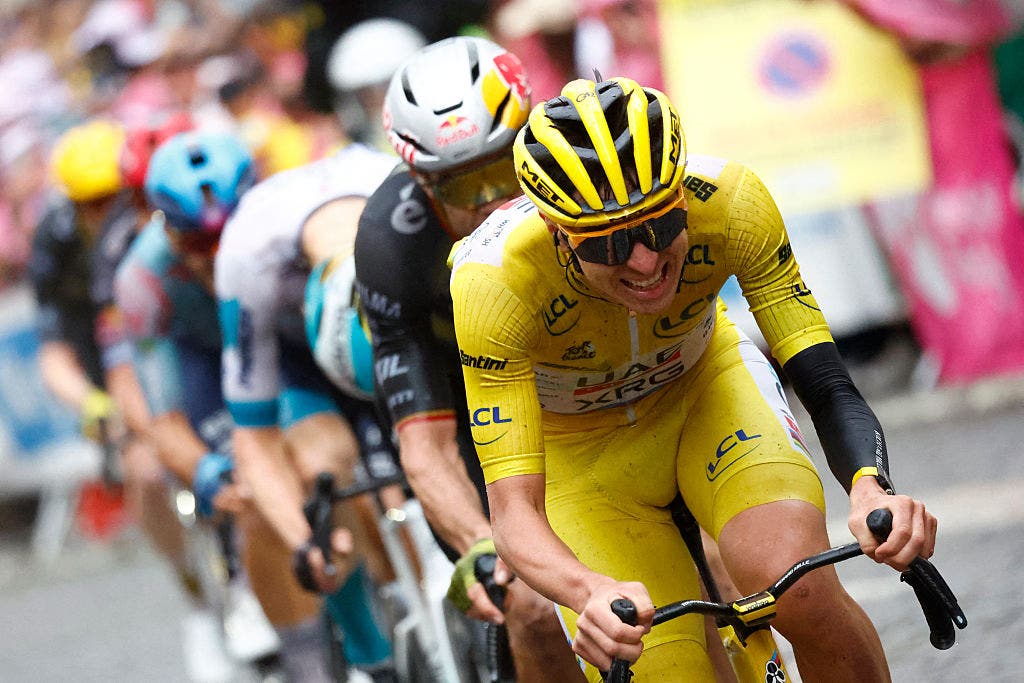 Pogačar discussed the realities of burnout after he suffered through the final week of the Tour de France. (Photo: Getty)
Pogačar discussed the realities of burnout after he suffered through the final week of the Tour de France. (Photo: Getty)
Ok, so Van der Sande’s comments are nothing new. Veteran racers warn cycling’s athletic fuse is shortening every passing year.
But it seems something changed this season.
Now, it’s not only mid-30-somethings who are beating back the burnout of a 24/7 profession.
The 23-year-old cyclocross dominator Fem van Empel only recently returned from a break after she was fried by cycling’s high-performance lifestyle. Leo Hayter, also 23, had to step away to deal with personal problems that reached boiling point in the pro cycling pressure-cooker.
Even Tadej Pogačar acknowledged his own mortality after he finished this summer’s Tour de France on fumes.
“I’m at this point in my career that if I do burn out I would be happy with what I achieved,” Pogačar said after he won his fourth yellow jersey. “To be serious, burnouts happen in sport, in a lot of sport, mental and physical burnout. We do train a lot, I think cyclists are a bit too obsessed with training, and we always try our hardest. Everyone wants to train more and more.
“You see some riders have fatigue too early in the season, and the team needs you to race, race, race, and you keep going in this circle and you never recover. Then you get to October and finally a break, then in December you do it all again,” Pogačar said.
“Burnouts happen all the time, and it could happen to me as well.”
Buried by data: Nutrition, sleep, training, body composition, and more
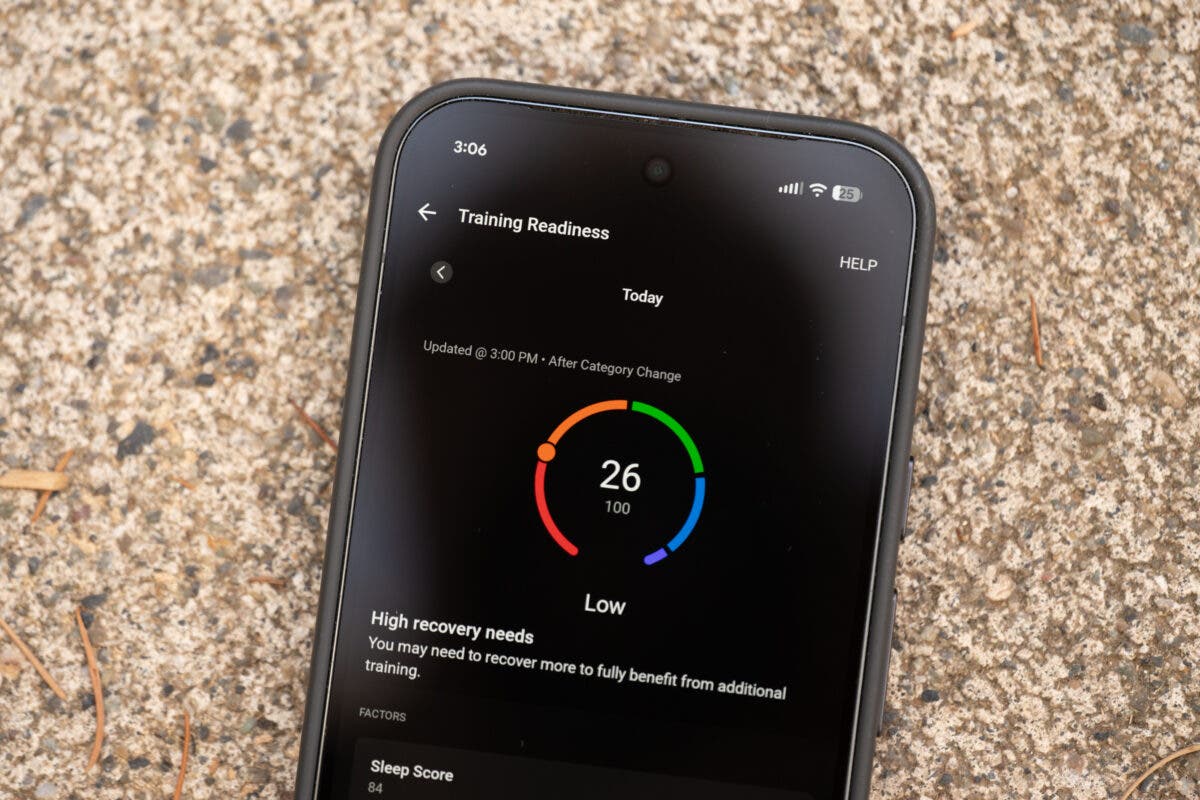 There’s a metric for everything in 2025. (Photo: Josh Ross)
There’s a metric for everything in 2025. (Photo: Josh Ross)
How long can pro cycling sustain its all-consuming high-performance evolution?
The peloton is pushing such wild extremes on the bike courtesy of equal extremes of dedication off of it.
Riders spend months away from home at altitude camps before they fly away again to race.
Meal plans are managed by the macro- and micro-nutrient. Sleep trackers flash red after a night in front of Netflix. Training sessions are prescribed in kilojoules and TSS rather than “hard” and “easy.”
The development of more training tools and the use of increasingly sophisticated body composition checks will turn up the dial even further.
‘I started canceling family dinners because I had to weigh my food’
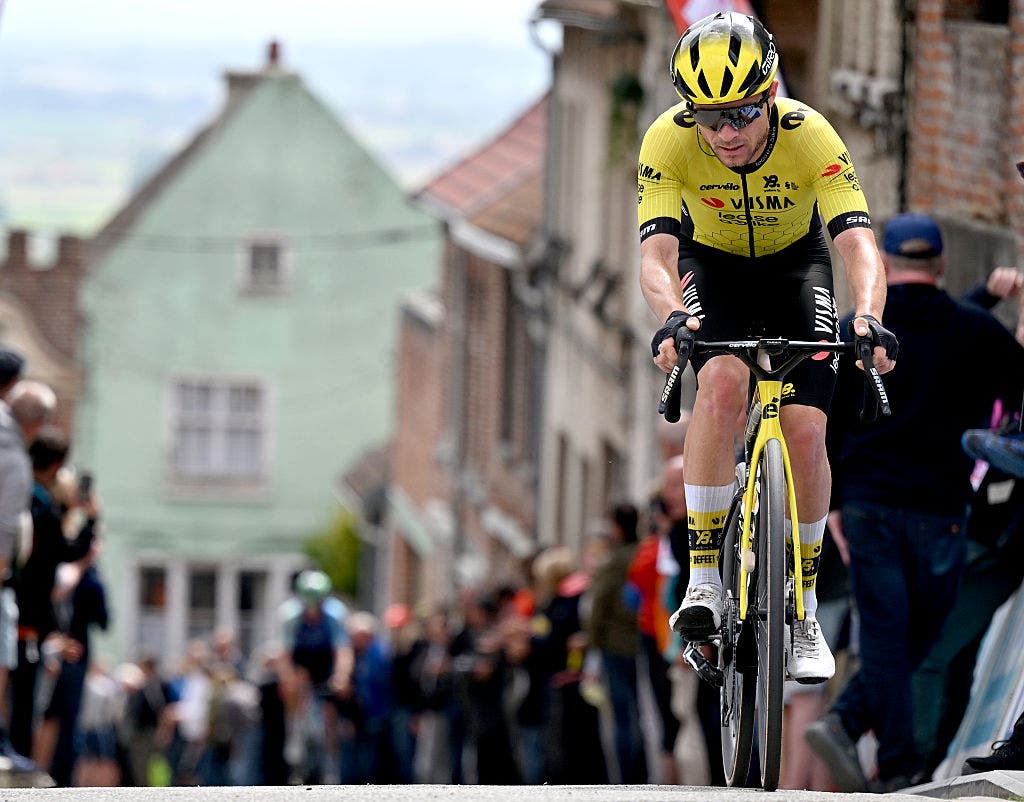 Van der Sande experienced cycling before and during its modern hyper-performance evolution. (Photo: Luc Claessen/Getty Images)
Van der Sande experienced cycling before and during its modern hyper-performance evolution. (Photo: Luc Claessen/Getty Images)
Van der Sande shared details of the grizzly, unsustainable reality of elite sport.
“You’re so focused on nutrition that you push yourself to the limit,” he said. “For me, it got to the point where I started canceling family dinners because I had to weigh my food.
“And if I did want to attend a family gathering, I’d bring my own food, while the rest of the family was enjoying something delicious.”
Michael Woods is also a part of the Retirement Class of 2025.
The Canadian enjoyed 11 wildly successful years in cycling, and several years before that in elite running.
His assessment was as bleak as that of Van der Sande.
“This is a job that requires unending commitment,” Woods wrote in his “epilogue” blog post. “For the past five years, I have avoided giving my kids kisses when I pick them up from school in an attempt to prevent getting sick before a race. That is strange.
“More often than not, I sleep in another room, separate from my family, in an effort to optimize my sleep. Every aspect of my life has been examined and studied to maximize my ability to ride a bike.
“That all-encompassing pursuit I have loved and have no regrets doing, but it is something that can only be sustained for so long,” Woods wrote.
Pro cycling is better equipped to deal with burnout, but the pressure remains
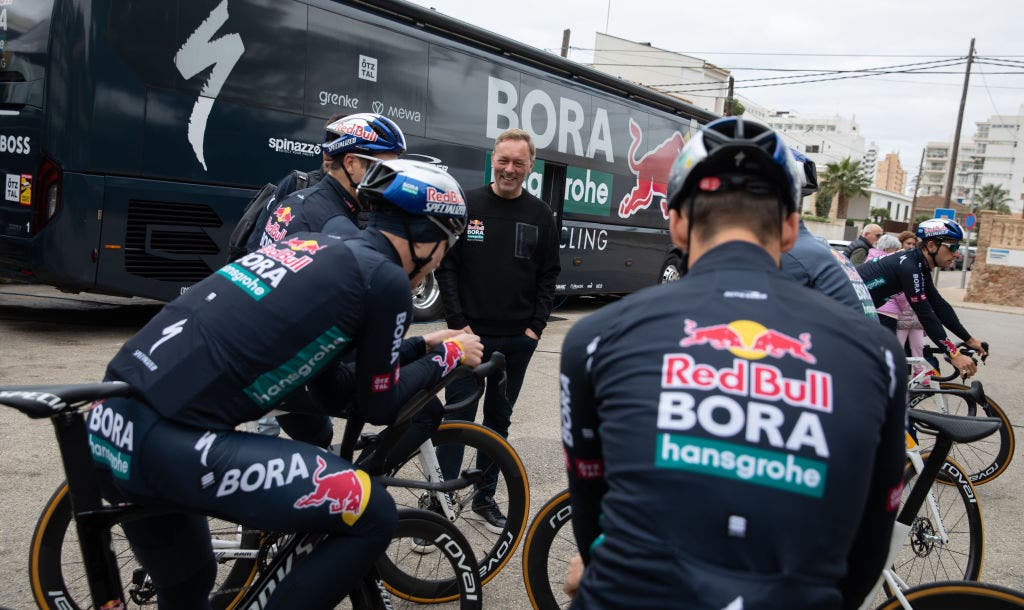 Red Bull-Bora-Hansgrohe, shown here in December 2024, have already had an off-season team camp. (Photo: Clara Margais/picture alliance via Getty Images)
Red Bull-Bora-Hansgrohe, shown here in December 2024, have already had an off-season team camp. (Photo: Clara Margais/picture alliance via Getty Images)
Woods maintained his athletic lifestyle through to age 39.
He and Van der Sande were both able to enjoy many years at the top of world cycling before it reached its insanely optimized modern form.
But this optimization hasn’t been all bad. There are, ironically, more guardrails than before.
Woods and Van der Sande retire from teams that have evolved to include nutritionists, medics, and psychologists who provide some balance to a sport of extremes. Visma-Lease a Bike is forward-thinking enough to have allowed Van Empel and Tom Dumoulin to pause their careers while they reset from burnout.
Indeed, Bobby Julich recently wrote for Velo how riders seem happier than when he raced through the early 2000s.
Improved training and recovery protocol, better rider-team communication, and regular medical checks ensure riders relish racing from February to October.
But how many years can pros stay happy in a post-pandemic peloton that races all year and barely tunes out?
The off-season is now measured in days rather than weeks. The months-long blow-out is now a moderate affair where beers and burgers are counted on one hand.
In fact, many teams are already meeting for introductory meet-and-greets and bike fitting sessions, just weeks after racing wrapped up in Guangxi.
Full commitment or no contract
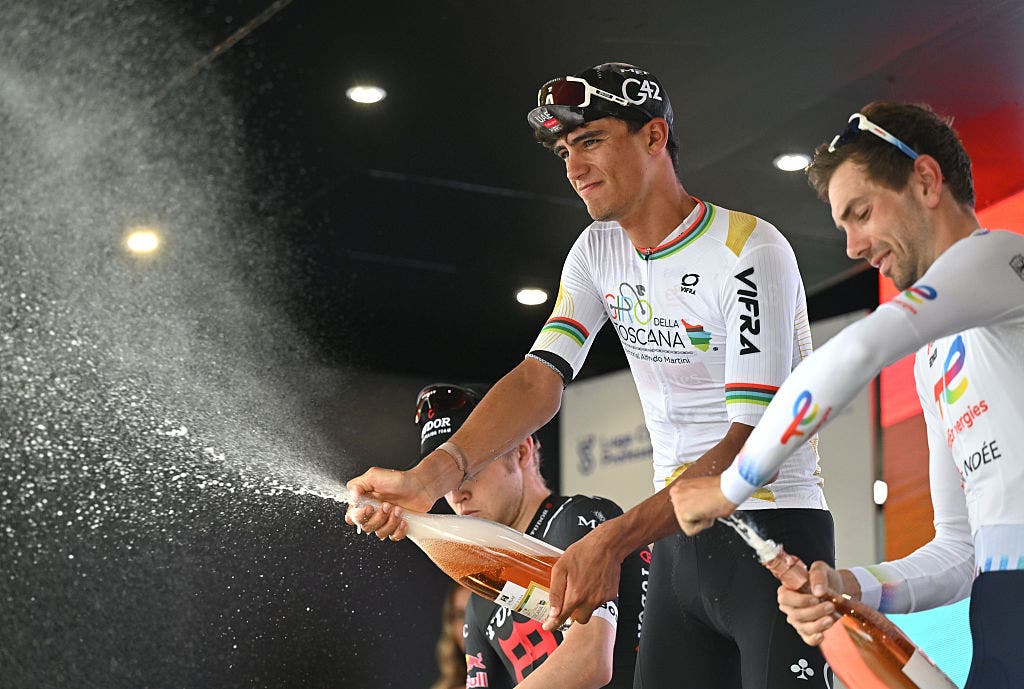 Isaac del Toro barely finished high school and he’s already one of the winningest riders in the peloton. (Photo: Luc Claessen/Getty Images)
Isaac del Toro barely finished high school and he’s already one of the winningest riders in the peloton. (Photo: Luc Claessen/Getty Images)
Van der Sande highlighted how better education in training and nutrition is leveling the field between all but the Pogačar- and Remco-eque outliers.
It’s a progression that’s also allowing riders like Isaac del Toro and Matthew Brennan to hit the WorldTour as teenagers and start winning before they’ve completed the induction ceremony.
This increased density of talent means only the most committed are guaranteed a ride.
Van der Sande’s suggestion to young riders “not to go too far … find some kind of happy medium” isn’t really an option in a lifestyle that demands 110-percent attention.
“It feels like there’s a bit more pressure on everyone, and that spots in every team have become even more expensive,” Van der Sande told Het Nieuwsblad.
“Everyone has also improved because of the evolution in equipment and approach. There’s very little difference in the peloton, not counting the real top riders, of course,” he said
As Bobby J wrote for Velo, cycling has in some ways become more sustainable. Riders can be at peak form for nine months a year, if not more.
But the advancements that make that possible might be making careers significantly shorter, too.

